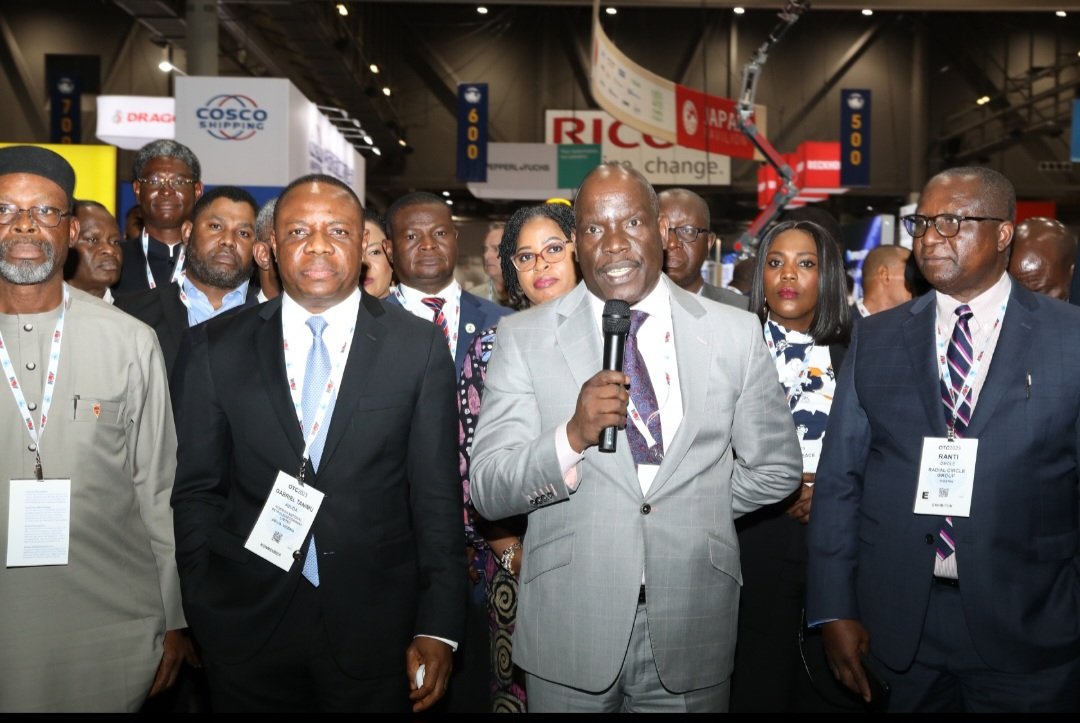The Nigerian Upstream Petroleum Regulatory Commission (NUPRC) has fully taken charge of the management and regulation of all crude oil export terminals in the country.
The Commission Chief Executive, Gbenga Komolafe, who disclosed this while appearing as a guest on the Arise TV breakfast programme monitored from Abuja on Monday, said the takeover of the terminal was in compliance with President Muhammadu Buhari’s directive on the issue.
A protracted dispute over the control and management of the terminals raged between the two petroleum industry regulatory agencies, namely the NUPRC, which is in charge of the regulation of the upstream sector of the petroleum industry, and its counterpart in the mid/downstream sector, the Nigerian Midstream and Downatream Petroleum Regulatory (NMDPRA).
Despite a recommendation by an Ad-Hoc Committee set up by the Senate to investigate crude oil lifting and theft as well as the impact on petroleum production and oil revenues, the dispute persisted, with the NMDPRA insisting on playing a role in the management of the terminals.
The Authority had argued that in view of its usage of pipelines in the transportation of petroleum products from the refineries to its fuel storage depots across the country as well as its involvement in other aspects of the industry services relating to crude and refined products movements, it should be allowed to continue to play a role in running a section of the export facilities.
Last month, President Buhari intervened in the dispute by asking the NMDPRA to abide by the recommendations of the Senate ad-hoc committee on the matter.
In a formal letter No SH/COS/24/A/78 conveying the directive dated May 3, 2023, and addressed to the heads of the two regulatory agencies, the President directed the NMDPRA to hands-off the regulation of all crude oil export terminals in the country, pursuant to the provisions of the Petroleum Industry Act (PIA) 2021.
Copies of the letter titled “Regulatory Oversight of Crude Oil Export Terminals” sighted by our reporter on Monday were also sent to the international oil companies operating in the country.
Signed by his Chief of Staff, Ibrahim Gambari, the President directed parties to the dispute to immediately comply with the Senate resolution, NASS/9S/R/03/934, that the NUPRC “is the sole and only regulatory entity to regulate and monitor the activities of all existing crude oil export terminals in Nigeria” in compliance with Section 7ee of the PIA (2021).
Also, the President directed that the exercise of any regulatory role by the NMDPRA on any existing crude oil export terminal established prior to the effective date of the PIA should cease immediately.
In addition, the President directed the Minister of State for Petroleum Resources to ensure immediate compliance with the directives and report back within 14 days of the resolution by all parties, including the NUPRC, NMDPRA, Nigerian National Petroleum Company (NNPC) Limited, Federal Ministry of Industry, Trade and Investment, Federal Ministry f Transportation, Department of State Services, Oil Producers Trade Section (OPTS), oil industry players and the relevant ministries, departments and agencies (MDAs).
The PIA (2021) confers on the NUPRC the responsibility for the technical and commercial regulations of upstream petroleum operations and the issuance of certificates of quality and quantity to exporters of crude oil, natural gas, and petroleum products from integrated operations of crude oil export terminals established prior to the effective date.
Also, the Act gives the Commission the power to monitor and regulate the operations of crude oil export terminals as well as the responsibility for weights and measures at the crude oil export terminals.
Answering questions during the TV programme, the NUPRC Chief said the takeover of the regulatory and management of the oil export terminals was part of the core activities and achievements of the Commission since its creation following the passage of the PIA.
Komolafe said within the last 18 months the Commission has been in operation, his team recorded a basket of achievements, including the restoration of the confidence of confidence in the industry, describing it as key to attracting investments to the sector.
“No investor will want to put his money in an environment of uncertainty and lack of clarity. We have been able to restore confidence via the process we have adopted, in terms of the regulatory inputs in place.
“Within a record time of 18 months, we were able to develop 18 key regulations; five of which have been fully gazetted, while 13 others are being reviewed by the Federal Ministry of Justice,” he said.
Besides, he said within the period the Commission was able to convert over 40 Oil Prospecting Licenses (OPLs) and PMLs.
Within the host communities, which is a key part of the PIA, we were able to incorporate 74 host community development funds, to inculcate a sense of ownership into the people by the time development projects would be implemented.
This, he said, would engender peace in the host communities, and allow uninterrupted operations in the area, thus ensuring investments to thrive for the overall benefit of the country, by increasing the oil and gas production.
Unlike the pre-PIA regime, the Commission has been able to narrow the clarity, and issues of discretion by automating its processes in a manner that allows it to operate with clarity and efficiency, as its decisions are now fully guided by law.




